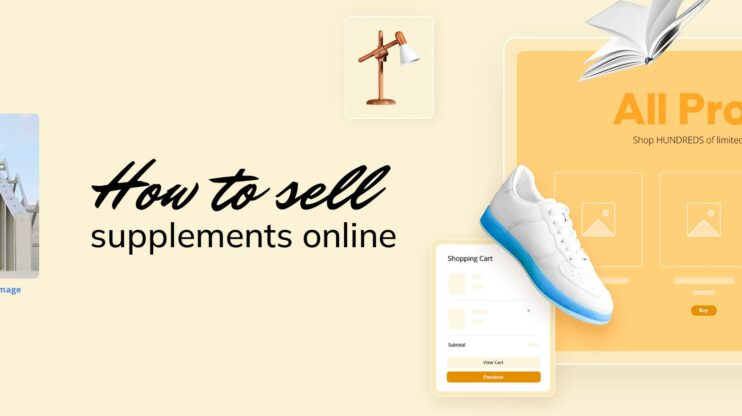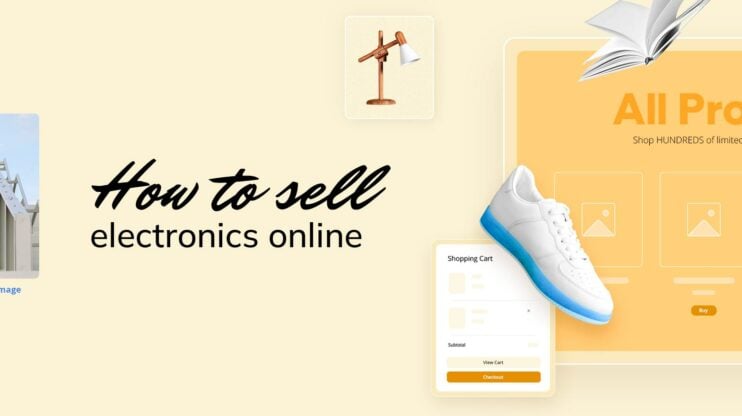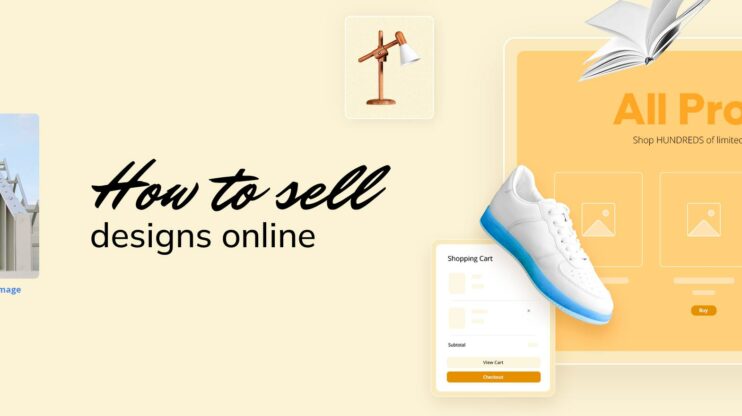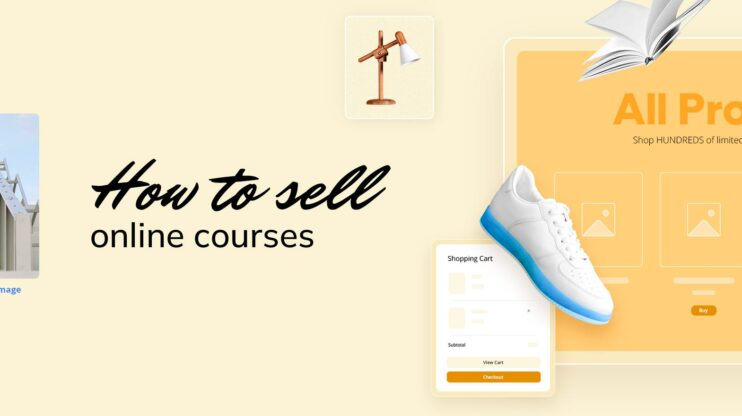So you’re starting an online business, and 2025 is a great year to do it. An online store has never been easier for small businesses, thanks to a variety of simple but powerful platforms that cater to different needs and budgets. Choosing the best ecommerce platform for your small business depends on your specific needs, budget, and goals.
In this guide, we’ll walk you through the top ecommerce platforms for small businesses, highlighting each platform’s key features, pricing, pros and cons. We’ll provide insights to help you choose the best option for your unique needs, covering essential factors such as ease of use, scalability, payment options, design customization, and security.

Create your online store in minutes!
Looking to sell online? Develop and launch your store with 10Web AI Ecommerce Website Builder.
Types of ecommerce platforms for small businesses
Finding the best ecommerce platform for your small business starts with understanding the types available. Each platform type offers unique features and advantages, allowing you to choose one that fits your budget, technical skills, and growth plans.
Hosted ecommerce platforms for small businesses
Hosted platforms manage server maintenance, security, and software updates, making them easy to use and low-maintenance.
- Best for: Small businesses that want a quick setup with minimal technical overhead.
- Pros: Easy setup, reliable security, and responsive customer support.
- Cons: Limited customization and reliance on the provider’s infrastructure.
Self-hosted ecommerce platforms for small businesses
Self-hosted options give you full control by allowing you to install software on your server.
- Best for: Small businesses with technical resources or customization needs.
- Pros: High customization potential and full control over design and functionality.
- Cons: Requires technical expertise and ongoing maintenance.
Open-source ecommerce platforms for small businesses
These platforms are free to use and can be customized extensively by modifying the source code.
- Best For: Businesses wanting high flexibility and with technical capabilities.
- Pros: Free software, extensive customization options, strong community support.
- Cons: Needs technical skills and self-hosting.
Headless ecommerce platforms for small businesses
Headless platforms separate the front and back ends, providing maximum flexibility for unique shopping experiences.
- Best for: Small businesses focused on a unique, highly-customized user experience.
- Pros: Flexible front-end design options.
- Cons: Complex setup, often requiring development resources.
All-in-one ecommerce platforms for small businesses
All-in-one platforms bundle ecommerce with business tools for POS, marketing, and inventory management.
- Best for: Small businesses needing an all-in-one solution for both online and offline sales.
- Pros: Simple setup, integration across multiple sales channels, and budget-friendly.
- Cons: Limited customization and scalability.
Marketplace platforms
Marketplaces let you list products on their sites rather than hosting your own store.
- Best for: Businesses looking for immediate customer exposure without setting up a standalone site.
- Pros: Access to a large audience, no need to manage a website.
- Cons: High competition, marketplace fees, and limited brand control.
B2B ecommerce platforms for small businesses
These platforms cater specifically to B2B sales, offering features like bulk ordering and custom pricing.
- Best for: Small businesses selling wholesale or targeting other businesses.
- Pros: Bulk pricing, inventory control, and business-focused tools.
- Cons: Often lacks simplicity for consumer-focused sales.
Each platform type offers something unique. Choose based on your budget, technical skills, and how much control you want over customization and growth potential.

Create your online store in minutes!
Looking to sell online? Develop and launch your store with 10Web AI Ecommerce Website Builder.
Features to look for in an ecommerce platform
When choosing an ecommerce platform for your small business, several key features can make a big difference. These elements will help you create a successful online store and grow your business.
Ease of use
A user-friendly platform saves you time and stress. Look for:
- A simple dashboard to manage your store
- Drag-and-drop tools for easy page building
- Built-in product management systems
- Quick setup wizards to guide you through the process
Many platforms offer free trials. Try them out to see which feels most comfortable for you. Some have steeper learning curves than others.
Pick a platform with good customer support. You’ll want help when you need it. Check if they offer phone, email, or chat support. Look for knowledge bases and video tutorials too.
Scalability
Your ecommerce platform should grow with your business. Consider:
- Ability to handle more products and orders
- Support for multiple sales channels
- Advanced features you can add later
- No limits on traffic or sales volume
Start with basic features, but make sure you can upgrade easily. As you grow, you might need things like:
- Inventory tracking across channels
- Customer relationship management (CRM) tools
- Advanced analytics and reporting
Check if the platform charges extra for these features or if they’re included in higher-tier plans.
Payment gateway options
Customers expect smooth, secure checkout experiences. Your platform should offer:
- Integration with major payment processors
- Support for multiple currencies
- Ability to save customer payment info
- Security features like SSL certificates
Popular gateways include PayPal, Stripe, and Square. Make sure your chosen platform works with the ones you want to use.
Some platforms have their own payment systems. These can be cheaper but may limit your options. Balance convenience with flexibility when deciding.
Customizable design
Your online store should match your brand. Look for platforms with:
- A wide range of themes or templates
- Options to customize colors, fonts, and layouts
- Ability to add your own logo and images
- Mobile-responsive designs
Some platforms let you edit HTML and CSS for more control. Others use visual editors that are easier for beginners.
Consider how much design flexibility you need. A simple, pre-made theme might work for some. Others may want full control over every aspect of their store’s look.
Security and compliance considerations
Protecting your online store and customer data is vital for any small business. Strong security measures build trust and keep your ecommerce site safe from threats.

SSL certification
SSL certificates encrypt data sent between customers and your website. This keeps sensitive info like credit card numbers safe from hackers. Look for ecommerce platforms that offer free SSL certificates with all plans. Some even handle the setup and renewal process automatically.
Make sure the certificate shows a padlock icon in the browser address bar. This tells shoppers your site is secure. SSL also boosts your search rankings, since Google favors secure sites.
Data protection
Safeguarding customer data is key for any ecommerce business. Pick a platform with built-in backups to protect against data loss. Look for features like:
- Daily automatic backups
- Easy restore options
- Offsite storage in secure data centers
Strong password policies and two-factor authentication add more layers of protection. Some platforms let you limit admin access and track user activity.
PCI compliance
If you take credit card payments, you need to follow PCI standards. These rules keep cardholder data safe. The best ecommerce platform for small business will handle most PCI requirements for you.
Look for platforms that are PCI DSS certified. This means they meet strict security standards. Some key features:
- Encrypted payment processing
- Secure card storage (if needed)
- Regular security scans and updates
Make sure to read what your responsibilities are to stay compliant. Even with a secure platform, you still need good security practices.

Create your online store in minutes!
Looking to sell online? Develop and launch your store with 10Web AI Ecommerce Website Builder.
The 15 best ecommerce platforms for small businesses
In this section, we’ll go over 15 of the best ecommerce solutions for small businesses, covering essential features, pricing, pros, and cons. This guide will help you choose the right platform to easily build, manage, and grow your online store based on online business ideas and your budget.
1. 10Web
10Web is a website and online store builder and a hosting platform that offers ecommerce solutions for small businesses. It provides an all-in-one solution to create and manage online stores easily. You can choose from various templates and customize them to fit your brand.
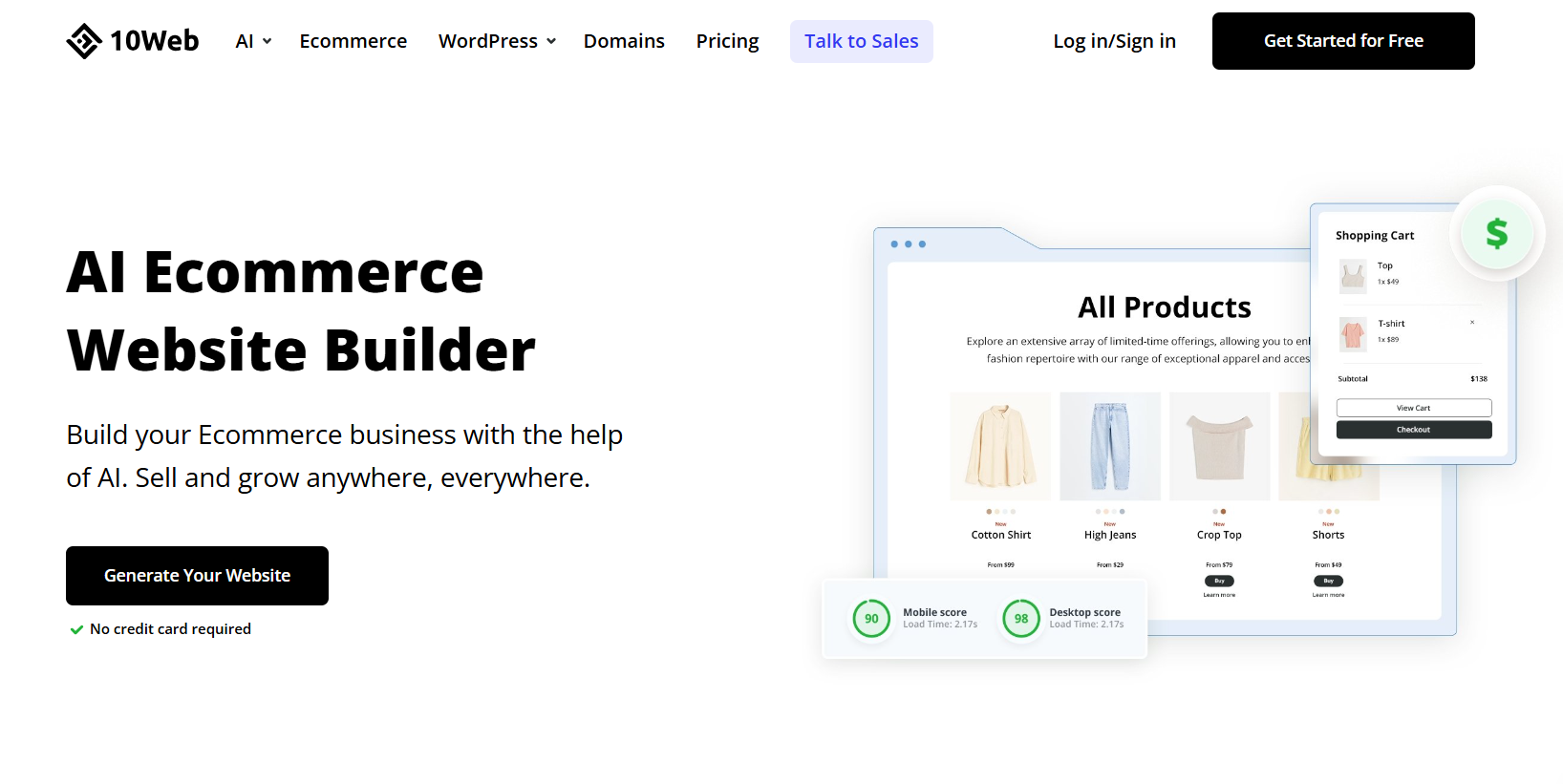
The platform includes essential ecommerce tools like product management, payment processing, and order tracking. You can add products, set prices, and manage inventory within the 10Web dashboard. The checkout process is smooth and secure, giving customers peace of mind when making purchases.
One standout feature of 10Web is its AI-powered website builder. This tool can create a basic website structure for you based on your preferences, saving time in the initial setup phase. You can then refine and personalize the design to match your vision.
| Pros | Cons |
| Easy-to-use interface | WordPress only |
| AI-powered website builder | May have fewer integrations |
| Integrated hosting and security | May not scale well for larger corporations |
10Web offers competitive pricing plans, starting from around $11 per month for basic ecommerce features. Higher-tier plans include more storage, bandwidth, and additional tools.
We chose 10Web as one of the best ecommerce platforms for small businesses because of its user-friendly approach and all-in-one solution. It’s ideal for entrepreneurs and small business owners who want to launch an online store quickly without dealing with complex technical setups.
2. WooCommerce
WooCommerce is a popular ecommerce platform that works as a plugin for WordPress websites. It’s one of the best ecommerce solutions for small businesses that already have a WordPress site and want to add online selling capabilities.
You can use WooCommerce to sell physical products, digital downloads, or services. The platform offers features like inventory management, shipping options, and payment processing.
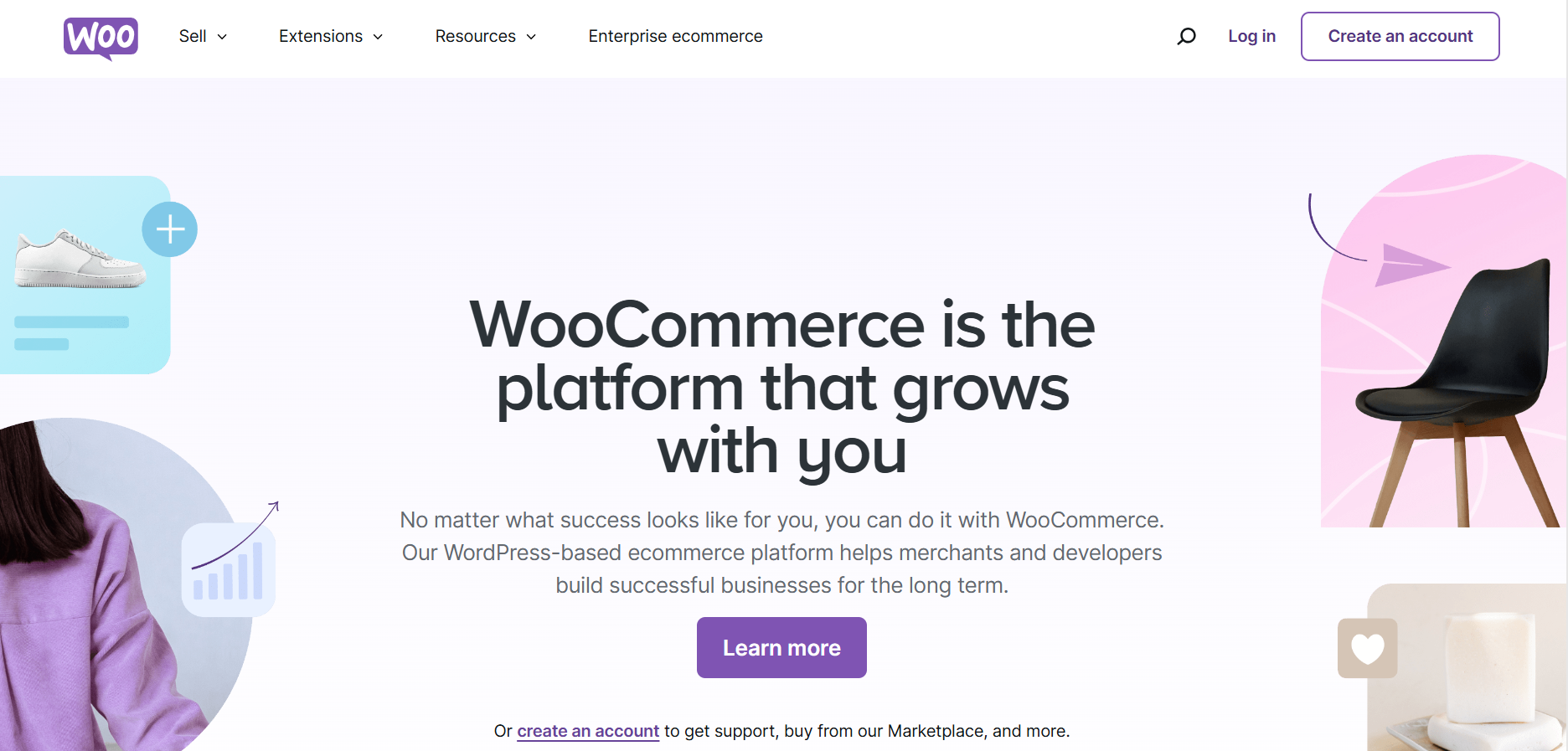
WooCommerce is free to install and use, but you may need to pay for additional plugins or themes to enhance your store’s functionality. Costs can vary depending on your specific needs.
One advantage of WooCommerce is its flexibility. You have full control over your store’s design and features. It also integrates well with many other WordPress plugins.
On the downside, WooCommerce can be more complex to set up compared to some other ecommerce platforms. You’ll need some technical skills or may have to hire help to get your store running smoothly.
| Pros | Cons |
| Free to install | Can be complex to set up |
| Highly customizable | May require technical skills |
| Integrates with WordPress | Additional costs for some features |
WooCommerce is best for small to medium-sized businesses that want a customizable online store and don’t mind putting in some extra effort to set it up.
3. BigCommerce
BigCommerce is a top choice for small businesses looking for an ecommerce platform. It offers a wide range of features to help you build and grow your online store.
You get access to many tools for managing products, orders, and customers. The platform supports selling on multiple channels like Facebook and Instagram. This lets you reach more potential buyers.
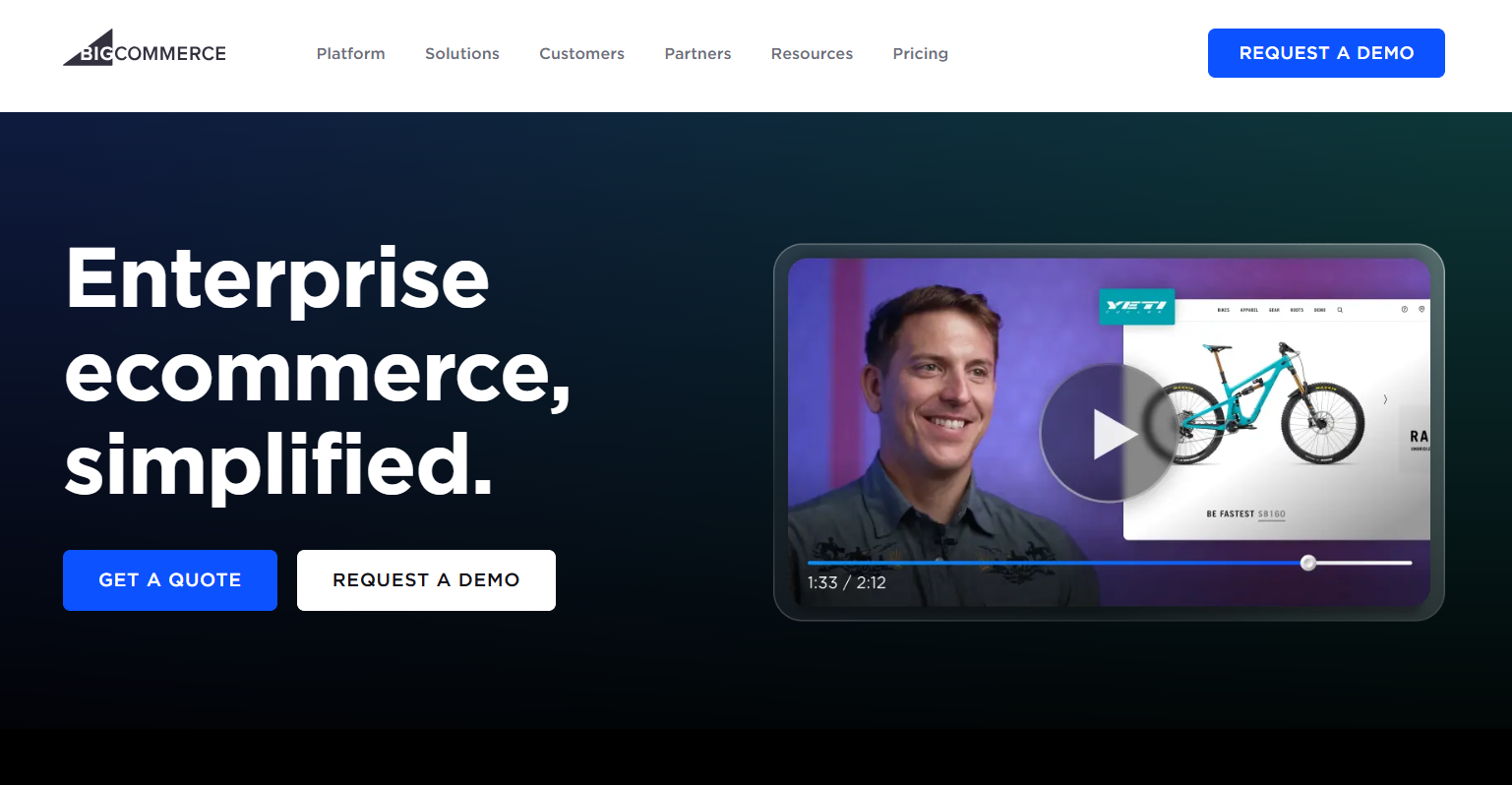
BigCommerce provides customizable templates for your store design. You can easily change colors, fonts, and layouts without coding skills. If you know how to code, you have even more options to create a unique look.
One downside is that BigCommerce can be pricier than some other platforms. Plans start at $39.00 per month and go up based on your sales volume.
Another drawback is the learning curve. Some users find it takes time to figure out all the features.
| Pros | Cons |
| Scalable for growing businesses | Can be expensive |
| Lots of built-in features | Steeper learning curve |
| Multi-channel selling options | Limited free themes |
BigCommerce stands out as one of the best ecommerce platforms for small businesses because of its scalability. As your business grows, the platform can handle increased traffic and sales.
It’s a good fit for small to medium-sized businesses that want room to expand. If you plan to sell both online and in person, BigCommerce integrates well with point-of-sale systems.
4. Shopify
Shopify is a popular ecommerce platform for small businesses. It offers a complete solution to set up and run your online store. You can create a website, process payments, and manage inventory all in one place.
Shopify provides many features to help you sell products. You can customize your store’s design, add products, and set up shipping options. The platform also lets you sell on social media and other marketplaces.

Many small business owners like Shopify’s ease of use. You don’t need coding skills to build a professional-looking store. The platform offers 24/7 customer support if you need help.
Some users find Shopify’s transaction fees high, especially on lower-priced plans. You may also need to pay extra for certain apps or themes to get all the features you want.
Shopify’s prices range from $29 to $299 per month for standard plans. There’s also a Shopify Lite plan for $9 monthly if you only need basic selling tools.
| Pros | Cons |
| Easy to use | Transaction fees on some plans |
| Many built-in features | Some features require paid apps |
| 24/7 customer support | Can be pricey for larger stores |
We chose Shopify for its all-in-one approach to ecommerce. It simplifies the process of starting and running an online business.
Shopify works best for small to medium-sized businesses looking to grow their online presence. It’s ideal if you want a user-friendly platform with strong sales features.
5. Squarespace
Squarespace is a popular website builder that offers ecommerce features for small businesses. You can create an online store using their ready-made templates and user-friendly tools.
Squarespace provides an all-in-one solution for your online business needs. You get hosting, domain registration, and design tools in one package. This makes it easy to set up and manage your store.

The platform shines in its design capabilities. You can create a visually appealing site that matches your brand. Squarespace also offers marketing tools to help you promote your products.
One drawback is the limited payment options compared to some competitors. The platform’s ecommerce features may not be as advanced as dedicated ecommerce solutions.
Pricing for Squarespace starts at $16 per month for basic online stores. More advanced plans with additional features cost up to $54 per month.
| Pros | Cons |
| User-friendly interface | Limited payment options |
| Beautiful templates | Less advanced ecommerce features |
| All-in-one solution | Higher pricing for advanced plans |
Squarespace stands out as one of the best ecommerce platforms for small business owners who prioritize design and simplicity. It’s a good fit if you want to create a beautiful online store without dealing with complex technical details.
This platform works well for creative professionals, service-based businesses, and small retailers. If you value aesthetics and ease of use over extensive customization options, Squarespace might be the right choice for your online store.
6. Wix
Wix is a known website builder that also offers ecommerce features for small businesses. You can create an online store using Wix’s drag-and-drop editor, which is easy to use even if you don’t have coding skills.
Wix provides tools for inventory management, order tracking, and payment processing. You can set up your store to sell physical products, digital downloads, or services.
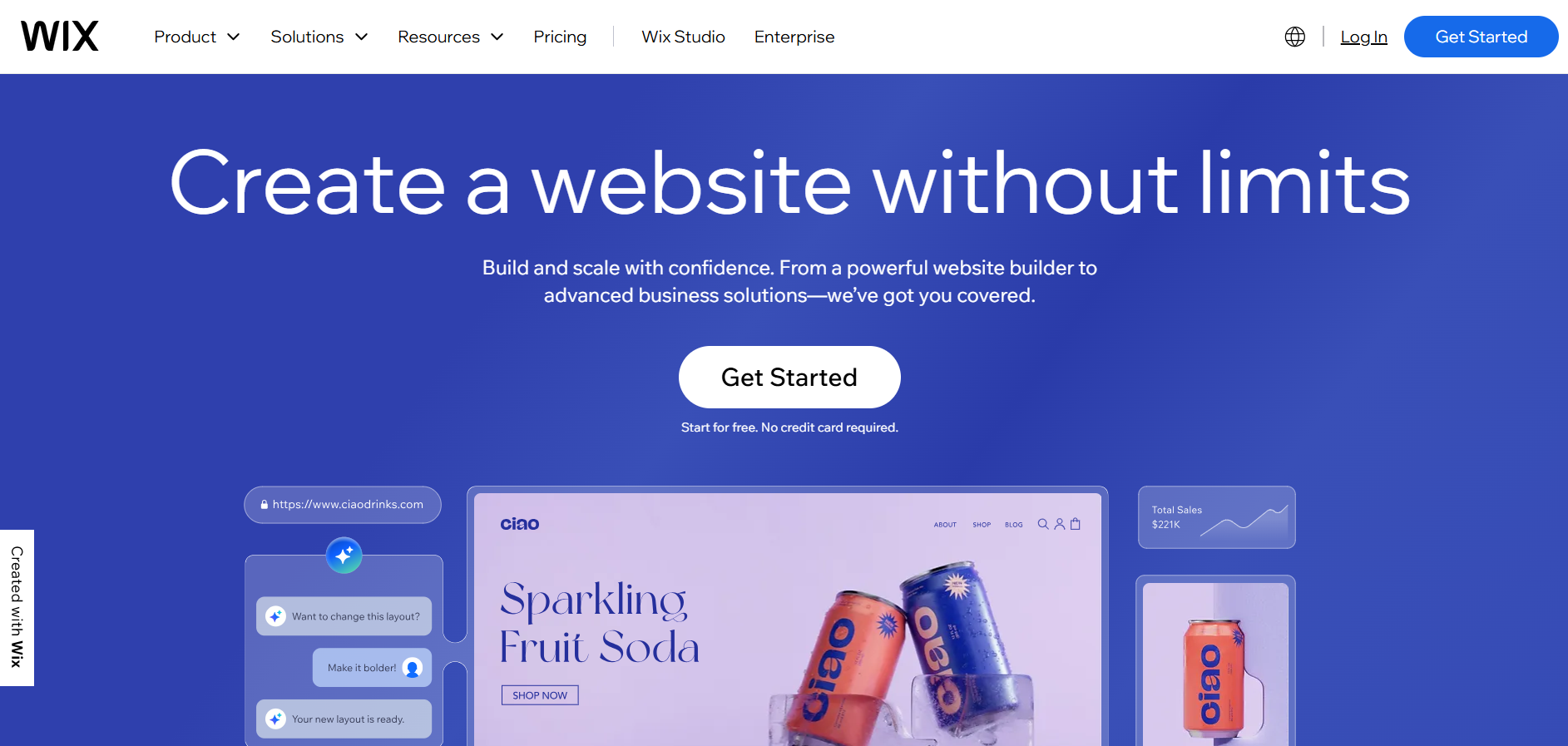
One advantage of Wix is its flexibility. You can choose from many templates and customize them to fit your brand. The platform also integrates with various apps to add extra features to your store.
On the downside, Wix’s ecommerce plans can be pricier than some competitors. Some users find the editor’s freedom overwhelming, making it harder to create a cohesive design.
Wix offers several pricing tiers for online stores, ranging from about $13.09 to $177.31 per month.
| Pros | Cons |
| Easy-to-use editor | Can be pricey |
| Many design templates | Too many options for some |
| Flexible customization | Limited advanced features |
We chose Wix for its user-friendly interface and versatile design options. It’s best for small businesses that want creative control over their online store’s look and feel.
7. Magento
Magento is a powerful ecommerce platform that offers many features for online stores. It comes in two versions: Open Source (free) and Commerce (paid). Magento is known for its flexibility and ability to handle complex product catalogs.
You can customize Magento to fit your specific needs. It supports multiple languages, currencies, and payment methods. The platform also offers tools for marketing, SEO, and customer management.
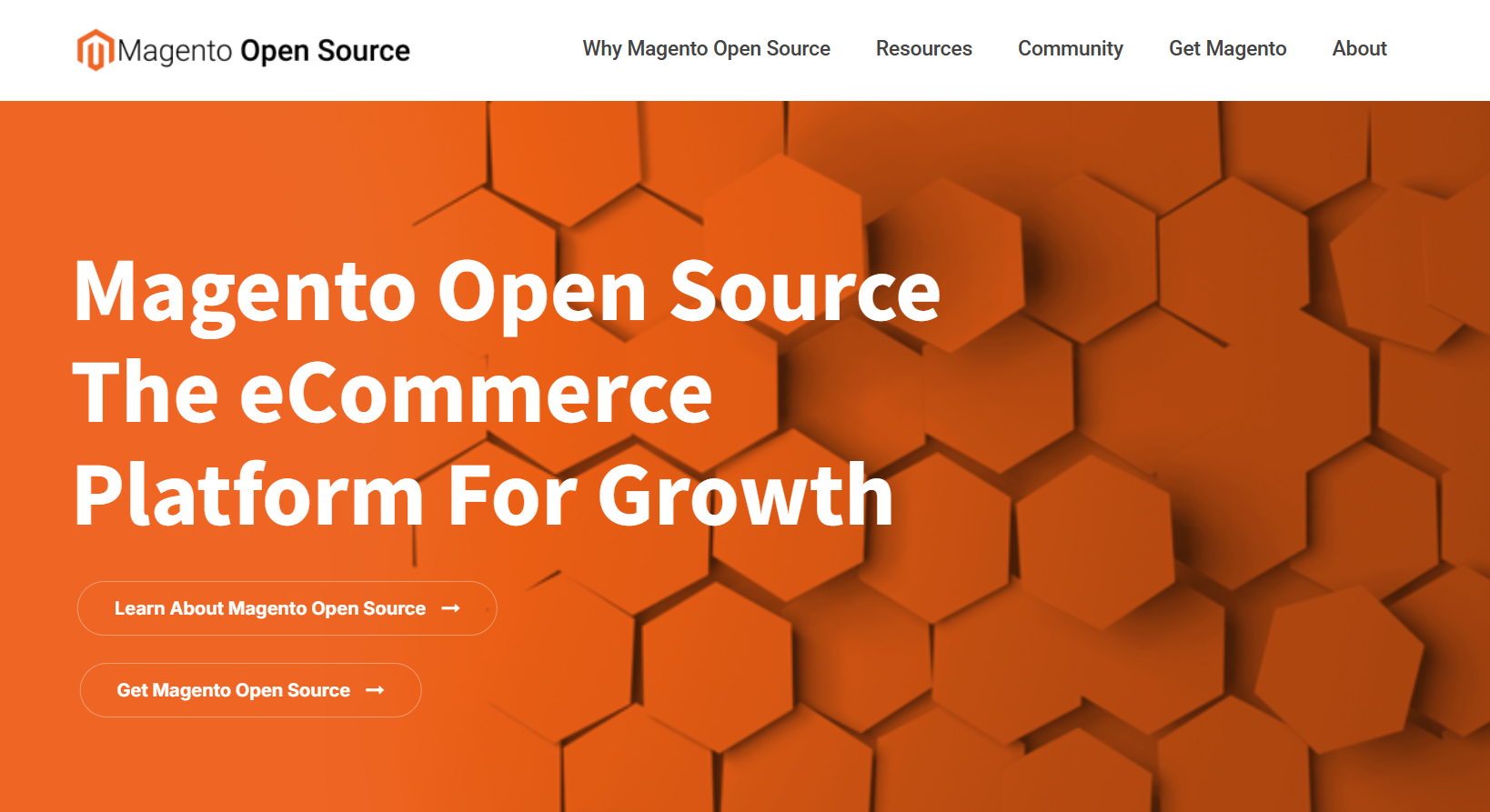
Magento has a steep learning curve. You’ll likely need technical skills or help from developers to set it up and maintain your store. This can make it challenging for small businesses with limited resources.
The platform works well for medium to large businesses with unique requirements. It’s not the best ecommerce platform for small business owners who want a simple, easy-to-use solution.
Magento Open Source is free, but you’ll need to pay for hosting, security, and any extensions you add. Magento Commerce pricing starts around $22,000 per year, which is costly for small businesses.
| Pros | Cons |
| Highly customizable | Steep learning curve |
| Scalable for growth | Can be expensive |
| Strong community support | Requires technical skills |
8. Volusion
Volusion is an ecommerce platform that helps small businesses create and manage online stores. You can use it to design your website, handle inventory, process payments, and take care of other online business tasks.
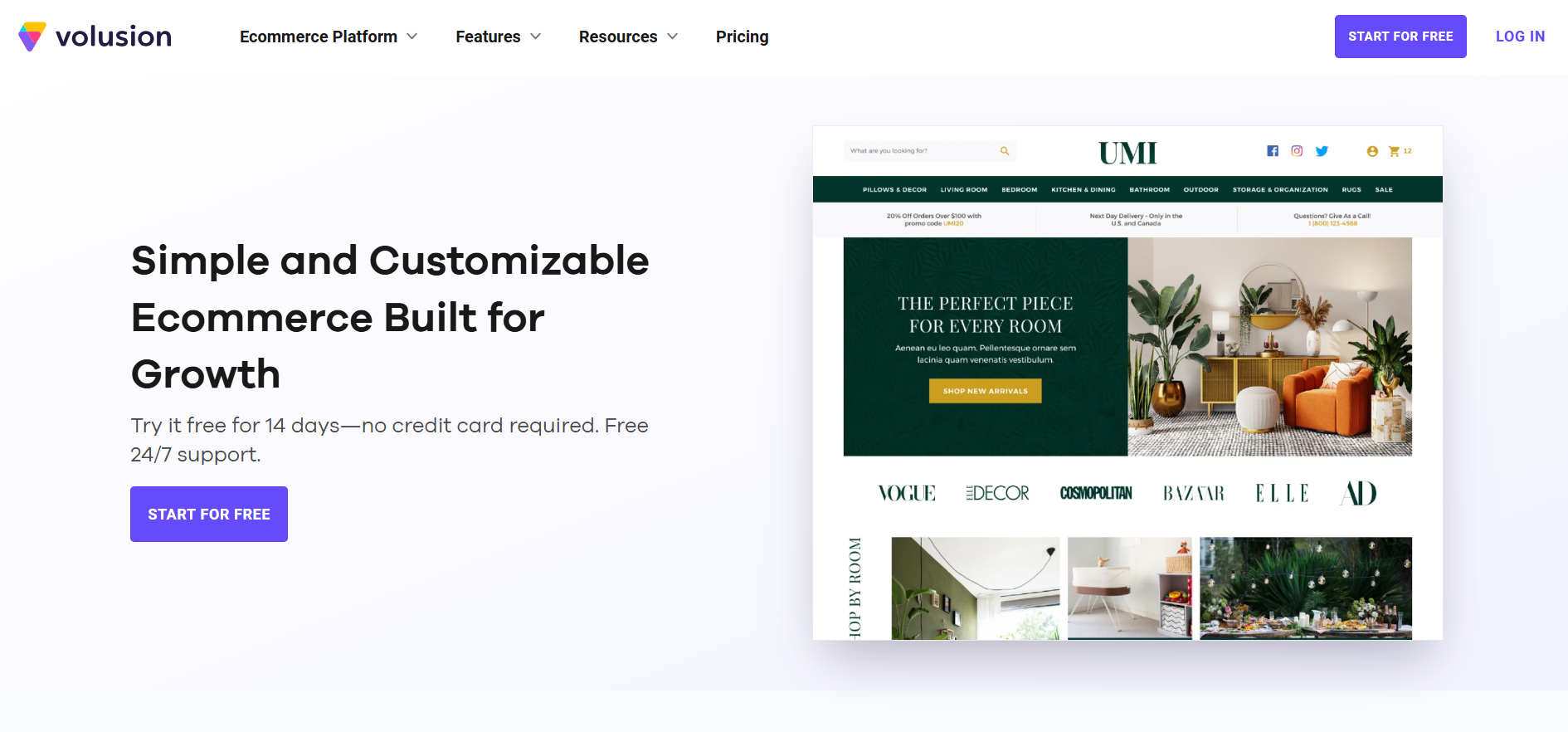
With Volusion, you get tools for marketing your products and managing orders. The platform offers 24/7 customer support by phone and live chat. This can be helpful when you run into issues or have questions.
Volusion’s pricing starts at $35 per month for the Personal plan, which allows up to $50,000 in annual sales. The Professional plan costs $79 per month and offers more features. Keep in mind that the Personal plan limits you to 100 products.
| Pros | Cons |
| Solid selling features | Limited products on Personal plan |
| No transaction fees | Can be complex for beginners |
| 24/7 customer support | Higher pricing than some competitors |
We chose Volusion because it’s a good fit for mid-size companies looking to grow their online presence. The platform provides solid selling features and doesn’t charge transaction fees.
Volusion works best for businesses that need a full set of ecommerce tools and have some experience with online selling. It might not be ideal for complete beginners or very large enterprises.

Create your online store in minutes!
Looking to sell online? Develop and launch your store with 10Web AI Ecommerce Website Builder.
9. Shift4Shop
Shift4Shop is a popular ecommerce platform for small businesses. It offers a wide range of features to help you set up and run your online store.
You’ll find Shift4Shop easy to use, with customizable templates and a user-friendly interface. The platform supports various payment options and provides tools for inventory management and order processing.

One major plus is the free plan for US merchants who use Shift4 Payments. This can save you money as your business grows. The platform also has strong SEO features to help your store rank well in search results.
On the downside, some users find the learning curve steep. The sheer number of features can be overwhelming at first. Customer support could also be improved, as response times can be slow.
Shift4Shop’s paid plans range from $39 to $229 per month. The free plan is a standout feature for qualifying merchants.
| Pros | Cons |
| Free plan available | Steep learning curve |
| Strong SEO features | Customer support can be slow |
| Customizable templates | Can be overwhelming at first |
We chose Shift4Shop as one of the best ecommerce platforms for small business because of its feature-rich offerings and potential cost savings.
This platform is ideal for small to medium-sized businesses looking for a scalable solution with advanced features. It’s especially good if you want strong SEO tools and are comfortable with a bit of a learning curve.
10. Weebly
Weebly is a popular ecommerce platform that lets you create an online store quickly and easily. You can choose from various design themes and customize them to fit your brand. The platform offers a user-friendly interface for adding products, setting up shipping, and configuring taxes.
Weebly’s free plan allows you to test the waters before committing to a paid option. Paid plans start at $13 per month when billed monthly, making it an affordable choice for small businesses. You get access to essential features like inventory management and secure checkout.
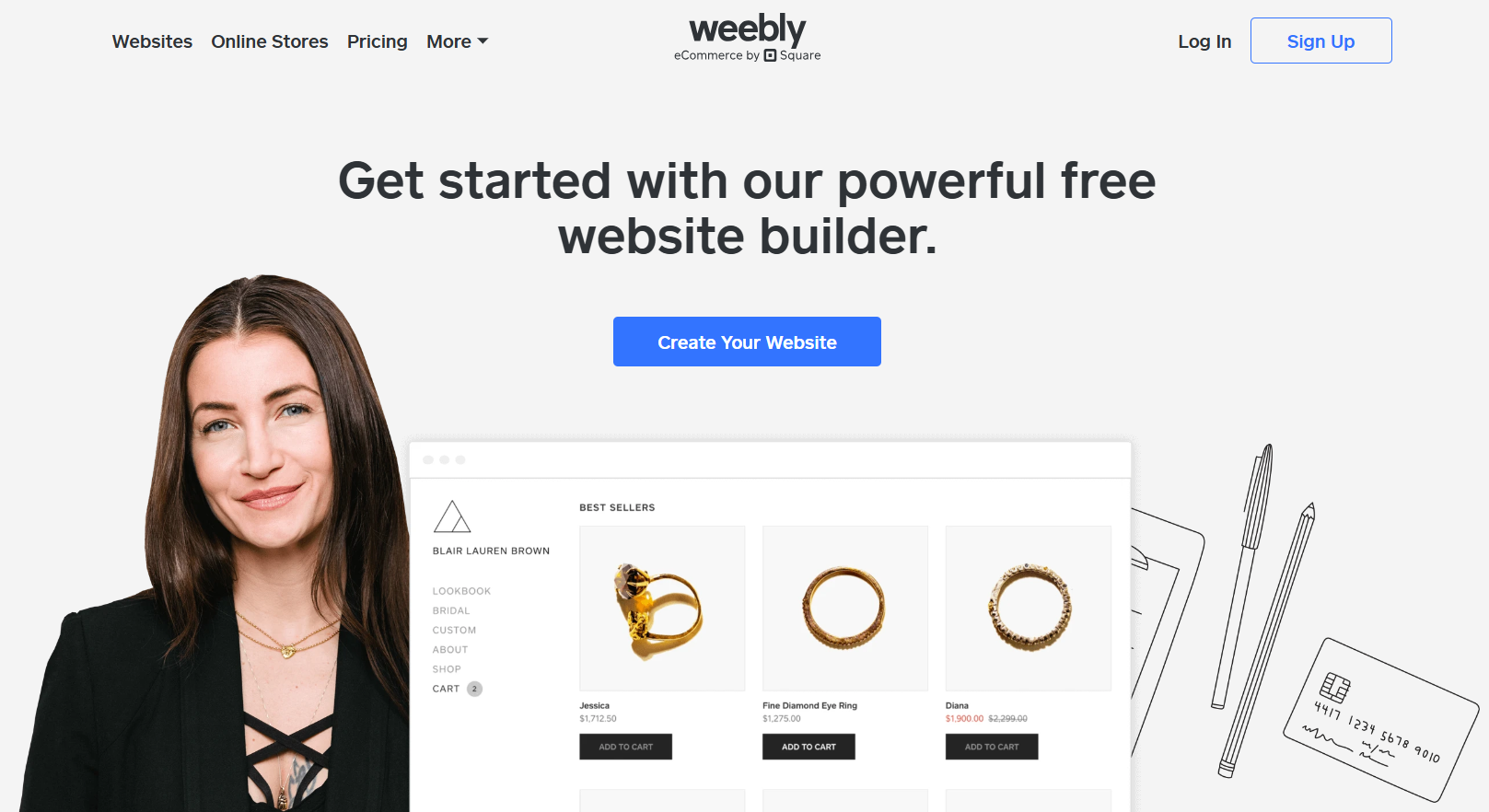
One advantage of Weebly is its simplicity. You can set up a basic online store in just a few steps. The drag-and-drop editor makes it easy to design your site without coding skills. Weebly also provides built-in marketing tools to help you promote your products.
On the downside, Weebly’s ecommerce features may be limited compared to some specialized platforms. Advanced users might find the customization options somewhat restrictive. The platform may not be ideal for larger businesses with complex needs.
| Pros | Cons |
| Easy to use | Limited advanced features |
| Affordable pricing | Restricted customization |
| Free plan available | Not ideal for large businesses |
Weebly is best for small businesses and entrepreneurs who want a straightforward way to start selling online. Its user-friendly interface and affordable pricing make it a good fit if you’re new to ecommerce or have a limited budget.
11. Ecwid
Ecwid is a popular choice for small businesses looking to add ecommerce features to their existing websites. You can easily set up an online store with Ecwid’s user-friendly platform. It offers a free plan that lets you list up to five products, making it a good starting point for new sellers.
With Ecwid, you can sell across multiple channels, including social media and marketplaces. The platform supports various payment methods and shipping options. This flexibility helps you reach more customers and grow your business.
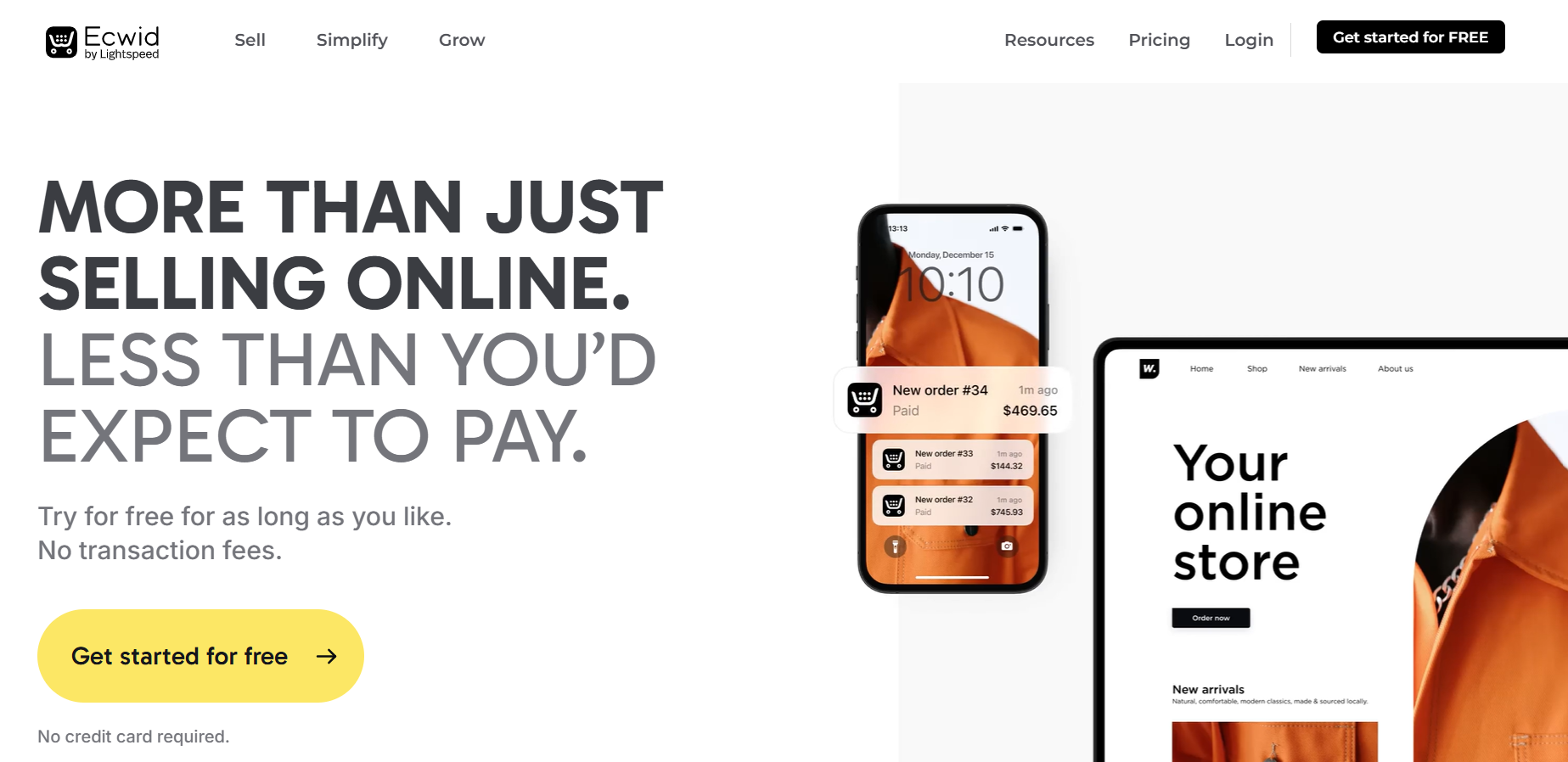
One of the main advantages of Ecwid is its affordability. Paid plans start at $25 per month, which is competitive compared to other ecommerce platforms. You also won’t have to pay extra transaction fees on top of your payment processor’s charges.
Ecwid’s drag-and-drop interface makes it easy to customize your store’s look. You can choose from several templates or design your own. The platform also offers features like inventory management and order tracking to help you run your business smoothly.
| Pros | Cons |
| Free plan available | Limited SEO features |
| No additional transaction fees | Not ideal for standalone websites |
| Easy to use interface | Limited customization options |
While Ecwid is great for adding ecommerce to existing sites, it may not be the best ecommerce platform for small business owners who need a standalone website. Its SEO features are also somewhat limited compared to some competitors.
12. OpenCart
OpenCart is a free, open-source ecommerce platform that lets you create and run an online store. You can download and use it without paying any fees. This makes it a good choice if you’re starting a small business on a tight budget.
The platform offers many features to help you sell products online. You can add items, set prices, and manage orders easily. OpenCart also lets you accept payments and handle shipping.
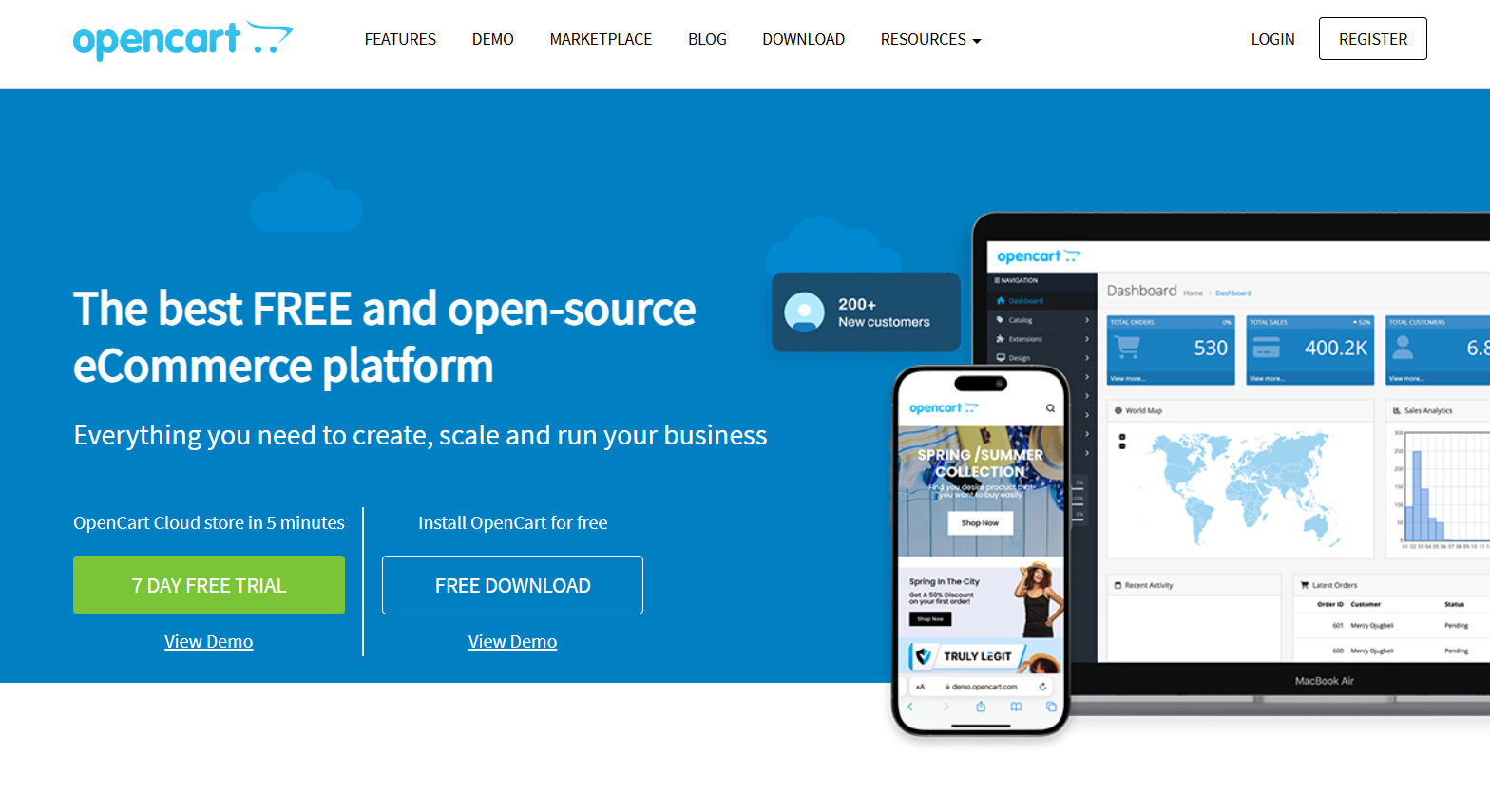
One of the best things about OpenCart is how easy it is to customize. You can change the look of your store and add new features. There are many free and paid add-ons you can use to make your store better.
But OpenCart isn’t perfect. It can be hard to use if you don’t know much about web design. You might need to hire someone to help set up your store.
The basic version of OpenCart is free. But you may need to pay for some add-ons or themes to get all the features you want.
| Pros | Cons |
| Free to use | Can be hard to set up |
| Many features | May need paid add-ons |
| Easy to customize | Requires some tech skills |
OpenCart is a good fit for small businesses that want a low-cost way to start selling online. It works well if you have some tech skills or can get help setting things up.
13. Kibo
Kibo offers a composable commerce platform for businesses. It combines eCommerce, order management, and subscription technologies. The platform aims to simplify complex customer experiences.
You can choose from modular capabilities with Kibo. This lets you buy only what you need now and add more later. The system is flexible and can grow with your business.
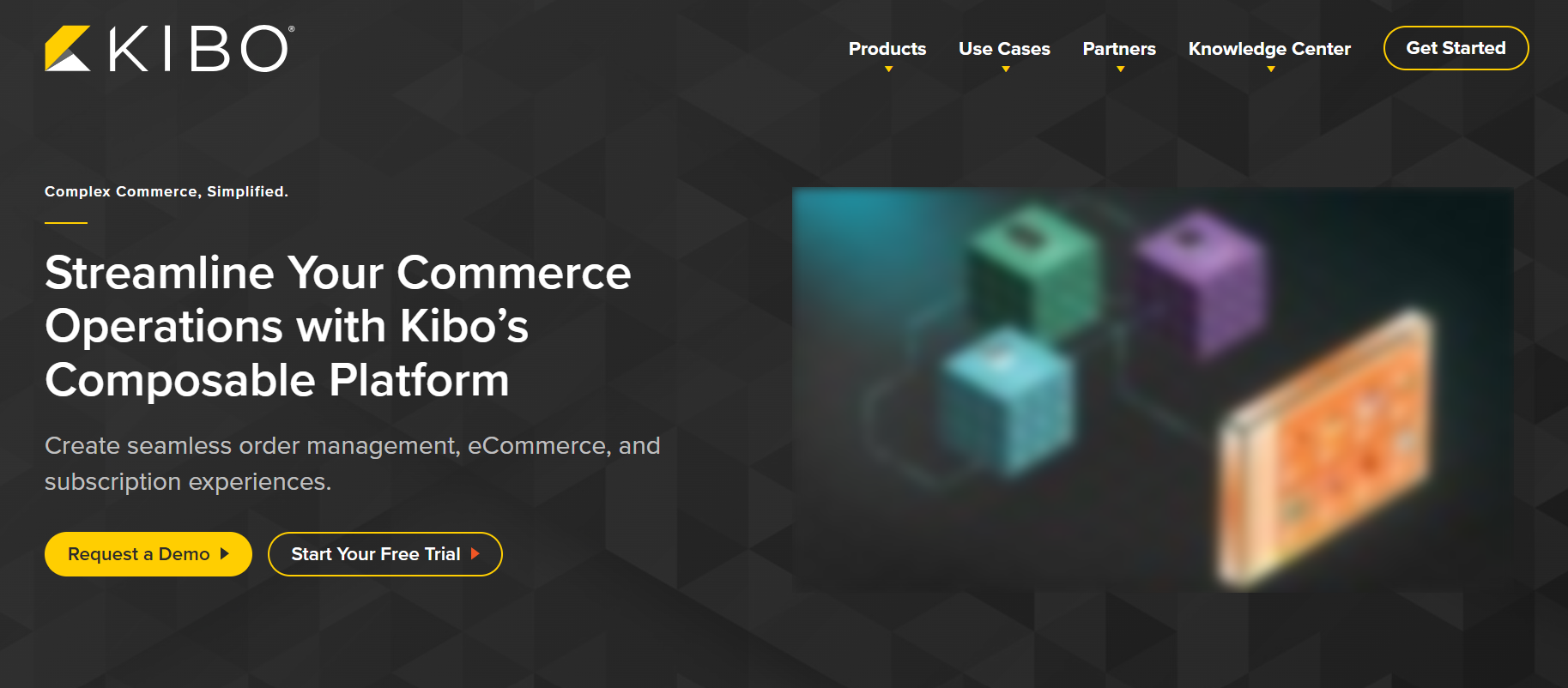
Kibo’s strengths include its headless architecture and API-first approach. These features make it easy to integrate with other systems. The platform also provides personalization tools and a content management system.
On the downside, Kibo may be too complex for some small businesses. Its advanced features could be more than what a small company needs. The platform seems better suited for mid-market and enterprise-level firms.
Kibo doesn’t publicly share pricing information. You’ll need to contact them for a custom quote. This lack of upfront pricing can make it hard to compare costs.
| Pros | Cons |
| Modular and scalable | May be too complex for some small businesses |
| Headless architecture | Pricing not publicly available |
| Personalization tools | Possibly overkill for simple online stores |
We picked Kibo as one of the best ecommerce platforms for small business because of its scalability. As your business grows, Kibo can adapt to your changing needs.
Kibo works well for businesses with complex product catalogs or those planning significant growth. It’s a good fit if you need a highly customizable platform.
14. Big Cartel
Big Cartel is an ecommerce platform designed for artists and small businesses. It offers a simple way to set up an online store and sell products. The platform is easy to use and doesn’t require technical skills.
Big Cartel provides free design templates to customize your shop. You can choose from different layouts and colors to match your brand. The platform also lets you manage orders, track inventory, and process payments.
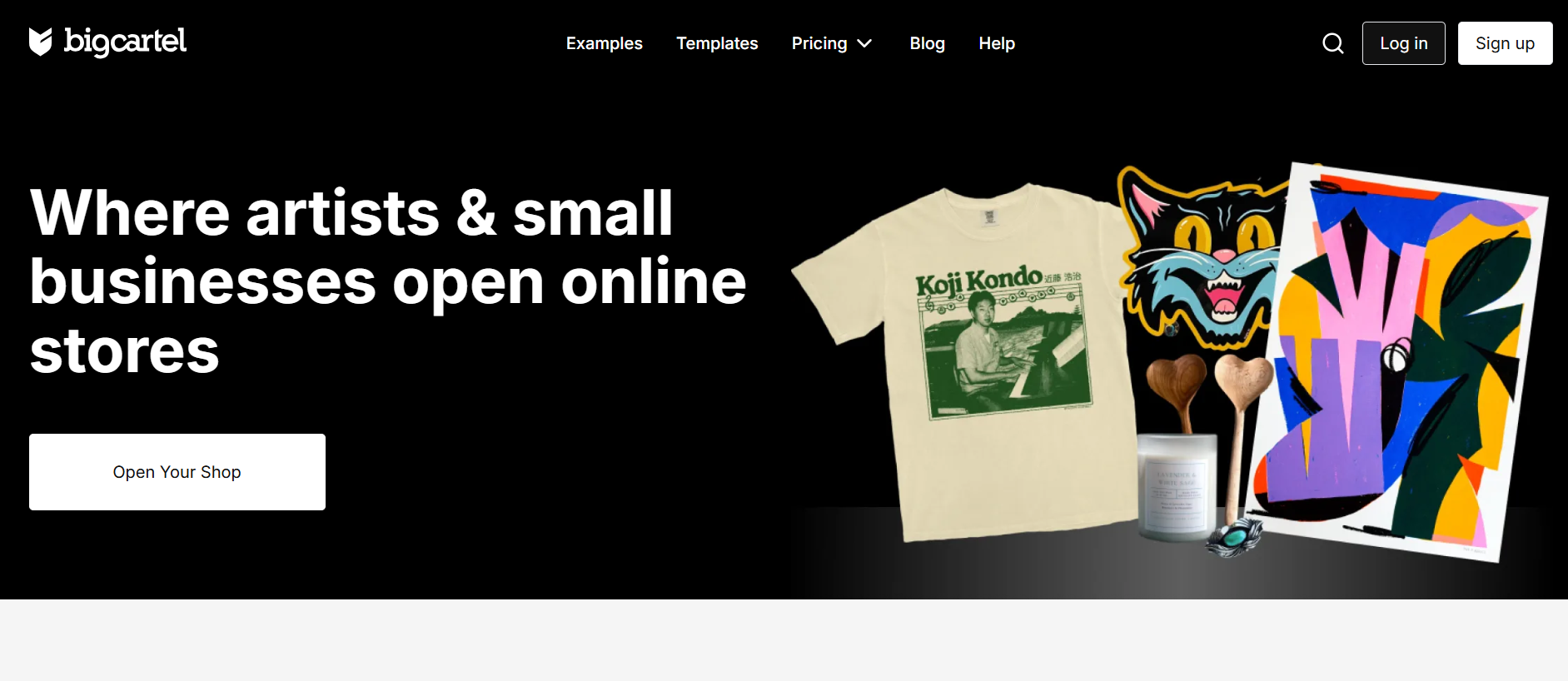
One major advantage of Big Cartel is its free plan. You can list up to five products without paying anything. This makes it a good choice for beginners or those with small inventories.
The platform has some limitations. It lacks advanced features found on other ecommerce platforms. You might outgrow Big Cartel if your business expands quickly.
Pricing starts at $0 for the free plan and goes up to $30.00 per month for more features. Big Cartel stands out for its focus on creative entrepreneurs and simple pricing structure.
| Pros | Cons |
| Free plan available | Limited features compared to other platforms |
| Easy to use | Not suitable for large inventories |
| Tailored for artists and makers | Fewer payment options |
Big Cartel works best for artists, crafters, and small businesses with limited product lines. It’s ideal if you want a straightforward way to sell online without complex tools.
15. Sellfy
Sellfy is an ecommerce platform that caters to small businesses and creators. It lets you sell digital products, physical goods, and subscriptions from a single storefront. The platform is user-friendly, making it easy for beginners to set up an online shop quickly.
You’ll find Sellfy especially useful if you’re a musician, artist, or videographer looking to sell digital content. It offers features tailored to these industries, such as secure file hosting and instant delivery of digital products.
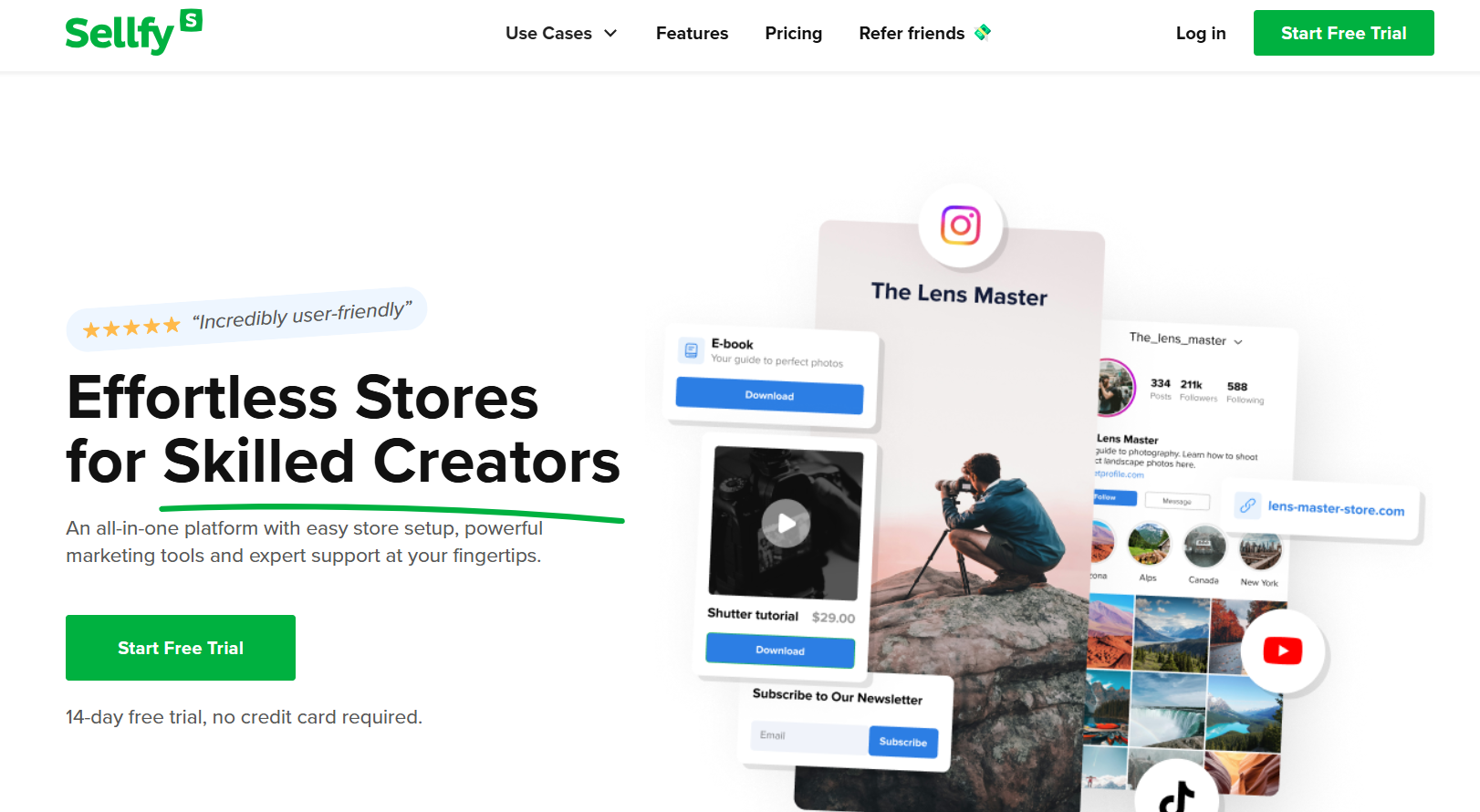
Sellfy provides built-in marketing tools to help boost your sales. You can create discount codes, send email campaigns, and use upselling features. The platform also integrates with popular payment gateways and offers print-on-demand services.
One drawback of Sellfy is its limited customization options compared to some other platforms. You might find the design templates a bit basic if you want a highly unique store look.
Sellfy’s pricing starts at $29 per month for the Starter plan, with more advanced plans available for growing businesses. The platform doesn’t charge transaction fees on its paid plans, which can save you money as your sales increase.
| Pros | Cons |
| Easy to use | Limited customization options |
| Supports digital and physical products | Basic design templates |
| No transaction fees on paid plans | Fewer integrations than some competitors |
Sellfy stands out for its focus on digital products and its simplicity. It’s a good choice if you want to start selling quickly without dealing with complex setups.

Create your online store in minutes!
Looking to sell online? Develop and launch your store with 10Web AI Ecommerce Website Builder.
Start your small business ecommerce with 10Web
2025 is an exciting time for small businesses to embrace ecommerce, and 2026 will be even better! With so many platforms available, you can find the perfect fit to boost your online store and attract customers. Whether you prefer the ease of 10Web, the customization of WooCommerce, or the design options of Squarespace, there’s a solution for you.
Now is the time to explore free trials and features that can help your business grow. The right platform can set you up for success in the digital marketplace, so why not start with a 10Web free trial to get you started. Get ready to take your small business to new heights and thrive online!
FAQ
What are the top small business ecommerce platforms?
Some of the top ecommerce platforms include 10Web, WooCommerce, BigCommerce, Shopify, Wix, and Squarespace. Each platform has unique features catering to different business needs.
Which platform is easiest for beginners?
Shopify is often regarded as the easiest platform for beginners due to its user-friendly interface. However, 10Web offers a simplified experience for WordPress users, allowing easy setup and management of ecommerce sites.
What is the cheapest option available?
WooCommerce is a cost-effective option since it is a free plugin for WordPress. However, you need hosting for it to scale. 10Web also offers competitive pricing for its hosting and services, making it affordable for small businesses.
Are there free ecommerce platforms?
Yes, platforms like WooCommerce and Square offer free versions. However, keep in mind that you may need to pay for hosting, domain registration, and additional features.
Which platform is best for dropshipping?
10Web supports dropshipping through WooCommerce, offering flexibility for WordPress users. Shopify is also recommended for dropshipping due to its integration with various dropshipping apps.
Which ecommerce platforms for small businesses are popular in the USA?
Shopify, WooCommerce, and BigCommerce are among the most popular ecommerce platforms in the USA. 10Web is gaining traction as a reliable option for those using WordPress.
What features should I look for in a small business ecommerce platform?
Look for features such as ease of use, customization options, payment gateway integrations, mobile responsiveness, SEO capabilities, and customer support.
How to choose the right small business ecommerce platform?
Consider your business needs, budget, technical skills, and the specific features you require. It’s also helpful to read reviews and compare platforms based on your priorities.









